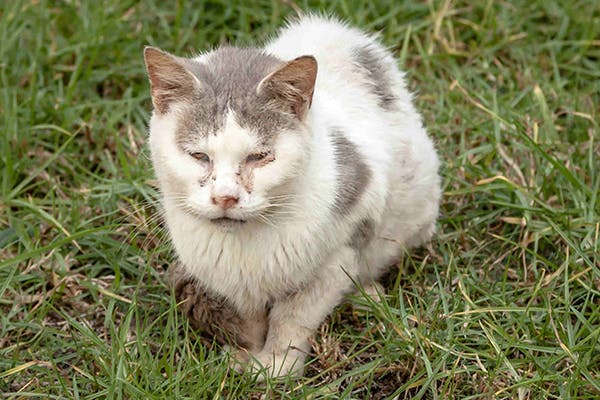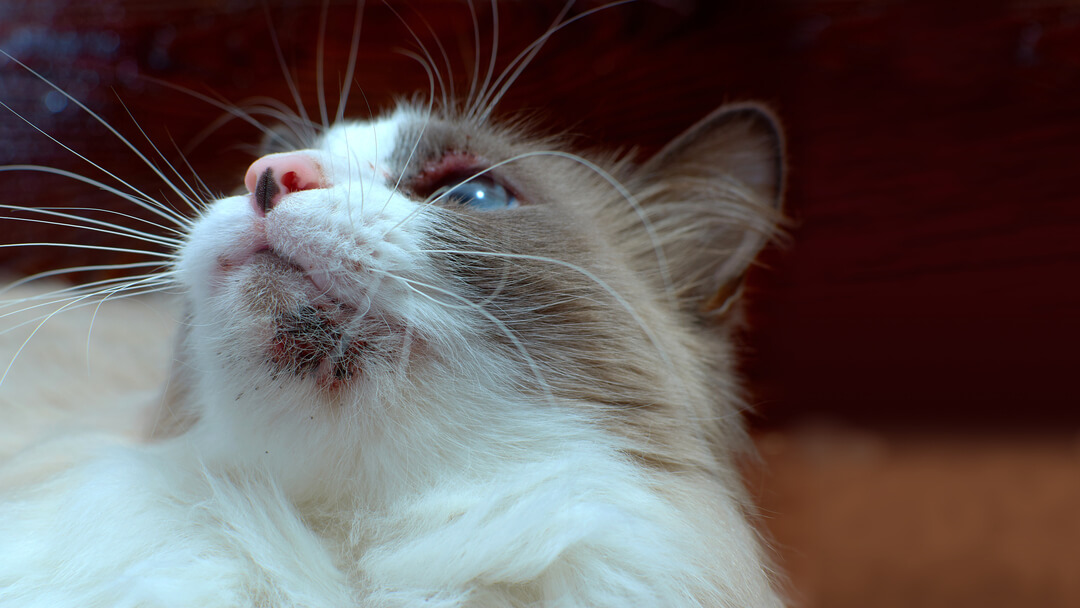Yes, cats can get runny noses. It is a common symptom of upper respiratory infections in cats.
Runny noses are not uncommon in cats, and it can be caused by a variety of factors such as allergies, infections or irritants. An upper respiratory infection is the most common cause of runny noses in cats. These infections can be viral or bacterial, and they can cause a range of other symptoms like sneezing, coughing, and fever. Feline herpesvirus and calicivirus are two common viruses that cause respiratory infections in cats. If your cat has a runny nose, it is important to monitor other symptoms and contact your veterinarian if you notice any additional signs of illness. They can provide advice and treatment options to relieve your cat’s symptoms and prevent them from developing more serious health issues.

Credit: wagwalking.com
Understanding The Causes Of Runny Nose In Cats
A runny nose can be a typical inflammatory reaction of a cat’s upper respiratory tract to allergens, dust, or irritation from smoke or perfume. Additionally, sinus infections and the common cold may also trigger a runny nose in cats. In some circumstances, cancer, foreign objects, or dental issues may also lead to a runny nose.
It’s crucial to understand the root cause of the runny nose and provide appropriate treatment. With a runny nose, a cat may experience sneezing, coughing, or lethargy. Depending on the underlying illness, a veterinarian may prescribe medication, fluids, or minor surgery to relieve the symptoms.
Keeping your cat’s environment clean and free of irritants can also help in preventing a runny nose.
Recognizing The Symptoms Of Runny Nose In Cats
Cats can get runny noses, which are typical of respiratory infections. Physical symptoms may include discharge from the nostrils, sneezing and coughing, and watery or swollen eyes. These symptoms may build over time and can last for a few days or weeks depending on the severity of the infection.
Cats may respond by showing behavioral changes such as sleeping more, reduced appetite, and avoiding contact. In severe cases, they can even become lethargic and exhibit difficulty in breathing. A cat owner should pay attention to these symptoms and take appropriate steps to ensure their pet’s wellbeing.
Vets can identify the cause of the infection and recommend medication to treat it. Keeping your cat’s living environment clean and reducing exposure to other sick cats can aid in preventing respiratory infections.
Simple at home TLC for a Cat with a Cold | Runny nose
Diagnosing Runny Nose In Cats
Cats do get runny noses, and diagnosing the root cause requires a veterinary examination. During the exam, the vet will observe the cat’s overall condition and ask about symptoms. Diagnostic tests such as blood work, x-rays and cultures will help identify viruses or bacteria responsible for the runny nose.
In some cases, the vet may need to take a sample directly from the nasal passage or use imaging technology to view the respiratory tract. Proper treatment depends on correctly identifying the cause of the runny nose. Once diagnosed, the vet may prescribe medication to help ease the symptoms and treat the underlying condition.
Treatment Options For Runny Nose In Cats
Cats can indeed suffer from runny noses, which can be stressful for both the cat and their owner. Fortunately, there are various treatment options available for this issue. Medications like antihistamines, decongestants, and antibiotics are commonly prescribed by veterinarians to alleviate symptoms.
However, home remedies can also be effective at reducing congestion and providing relief. Putting a humidifier in the room, using saline solution to flush out the nose, and providing plenty of fluids can all help a cat with a runny nose feel better.
It’s essential to seek veterinary care if the runny nose is persistent or accompanied by other symptoms, but in many cases, a little time and care can help a cat recover from this common issue.
Preventing Runny Nose In Cats
Cats can get runny noses, so it’s important to take steps to prevent respiratory infections. Allergy management for cats is crucial, as allergies can weaken the immune system. Keeping a clean environment can also help reduce the likelihood of infections.
Regularly cleaning litter boxes and washing bedding can be helpful. Additionally, make sure your cat is up to date on vaccinations and seek veterinary care if you notice any symptoms of illness or infection. By taking these steps, you can help keep your cat healthy and happy.
Frequently Asked Questions On Do Cats Get Runny Noses
Conclusion
Based on our research and analysis, we can confirm that cats can, indeed, get runny noses. In most cases, it is a sign of an underlying problem such as allergies, infections, or viruses. It is important for cat owners to monitor any changes in their cats’ behavior, especially when it comes to their health.
Frequent sneezing, discharge, or lethargy could be indicative of an issue that requires veterinary attention. Preventative care is the best approach to take, including monitoring your cat’s environment and keeping up to date with their vaccinations. Although runny noses might not seem like a major concern, it is always important to stay vigilant and take any potential health concerns seriously.
By doing so, you can ensure that your feline friend stays healthy and happy for years to come.
{ “@context”: “https://schema.org”, “@type”: “FAQPage”, “mainEntity”: [] }



